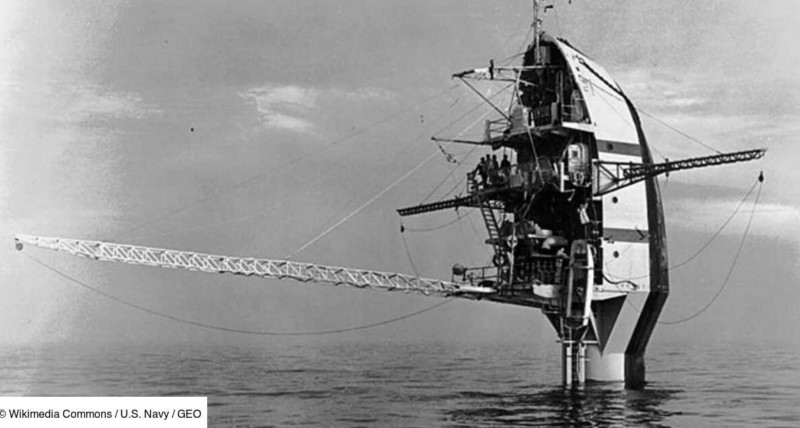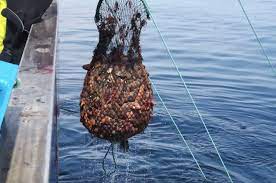Maritime transport is crucial to the global economy, with over 100,000 ships carrying around 80% of world trade each day. Yet it remains vulnerable to disruptions from geopolitical tensions and transnational crime.
Ensuring the security of maritime routes today while addressing emerging challenges was the focus of a debate at the UN Security Council on Monday, convened by Panama, which holds the Council’s rotating presidency for August.
Arsenio Dominguez, Secretary-General of the International Maritime Organization (IMO), told the Council that last year, a workforce of 1.9 million seafarers transported more than 12.3 billion tons of goods, maintaining the flow of global trade. The maritime sector has proven “remarkably resilient” in the face of geopolitical challenges.
« However, resilience must not breed complacency, » he warned. « Maritime safety and security are fundamental to economic stability, sustainable maritime development, and livelihoods. »
Multiple Threats
Threats are numerous. Nearly 150 acts of piracy and armed robbery were reported in 2024 alone. In some regions, such as Southeast Asia, incidents are sharply increasing, according to INTERPOL.
Beyond piracy, international ships navigating the Red Sea have also been targeted amid the Gaza conflict. Meanwhile, illicit trafficking continues — including drugs, endangered wildlife, and protected timber — with organized crime groups exploiting criminal supply chains to move weapons, agents, and illegal goods to fund their operations.

A “Network” Under Attack
Maritime routes have long been “the first truly global network,” connecting distant shores for thousands of years, noted Valdecy Urquiza, Secretary-General of INTERPOL.
« Today, more than ever, the same network is exploited by criminals who threaten navigation, trade, and communications — and with them, global stability essential for sustainable development, » he explained.
He added that “polycrime at sea” “strengthens criminal resilience and complicates enforcement” as new, less visible threats emerge.
« With the digitalization of ports — including automation of ship management, cargo tracking, and logistics — vulnerabilities appear faster than they can be secured. Ports face waves of cyber intrusions targeting the power, communication, and logistics systems on which they rely. »
Furthermore, “cybercriminals can use artificial intelligence as a weapon to attack faster, on a larger scale, and with greater precision.”
Global Coordination and Environmental Action
In response, the IMO has developed binding requirements for the international security of ships and ports, as well as cybersecurity threats. The UN agency has also supported projects to strengthen regional capacities, including information sharing, alongside partnerships with UNODC, INTERPOL, regional entities, and donor states to build national capacities and trust.
« While addressing maritime security, we must not lose sight of our responsibility to protect the ocean, » Dominguez said.
« Maritime safety, security, and environmental management go hand in hand. Support to countries to develop and enhance response capacities for marine pollution — including oil spills — continues. »

Perspectives from the Panama Canal
The Council also heard from the agency responsible for operating the Panama Canal, one of the world’s most important maritime corridors.
Ricaurte Vásquez Morales, CEO of the Panama Canal Authority, described it as “one of the most emblematic channels of human cooperation,” highlighting the strength of “principle-based neutrality.”
« The Panama Canal is governed by an international treaty guaranteeing equal access to all nations in times of peace and war, » he said. “This promise, enshrined in our Constitution, has allowed a small country to contribute to the stability of global trade, protecting this infrastructure from geopolitical tensions that too often also hinder progress.”
He noted that the canal has been under Panamanian administration for 25 years, during which a third set of locks was completed in 2016, increasing the volume of goods passing through by 50%.
Climate Adaptation
Like the IMO Secretary-General, Vásquez Morales emphasized the need to address climate change. The canal has experienced drought over the past two years, prompting water conservation efforts, logistical adjustments, and the construction of an artificial lake.
« Today, the canal is equipped with technologies that enhance climate resilience, » he said. “It creates financial mechanisms, ensures water and environmental security, implements effective governance to harness rapid AI advancements, and collaborates to strengthen cybersecurity across our routes and logistics systems.”
In conclusion, Vásquez Morales stressed that “the Panama Canal is living proof that global public goods can be managed fairly, responsibly, and with vision.”
« Through sustained cooperation, constant adaptation, and unwavering commitment to international law, the canal will remain a safe and efficient route, serving not only this generation but those to come. »
Source: news un




